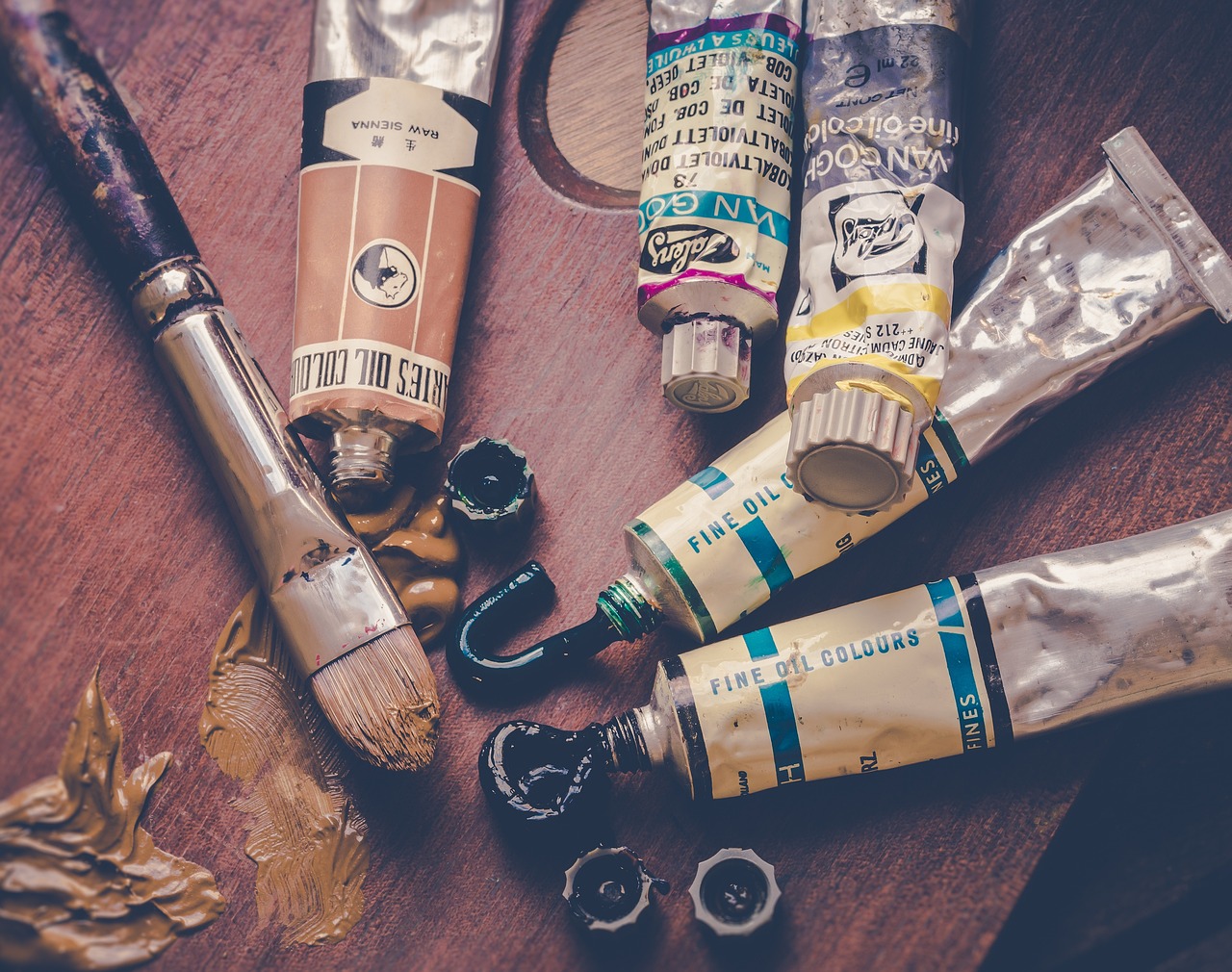Exploring Hobbies And Interests: Nurturing Passions Beyond The Classroom
Have you ever wondered about the benefits of pursuing hobbies and interests outside of the classroom? In this article, we will explore the importance of nurturing our passions beyond academic pursuits. Engaging in activities that we genuinely enjoy not only helps us relax and unwind but also enhances our well-being and personal growth. So, let’s discover the exciting world of hobbies and interests and unleash the hidden potentials within us!
Why Exploring Hobbies and Interests is Important
Exploring hobbies and interests is not just a way to pass the time; it is an essential aspect of personal growth and development. Engaging in activities that we are passionate about can bring a wide range of benefits to our lives, from enhancing our creativity and problem-solving skills to boosting our mental health and social interactions. In this article, we will delve into the various reasons why exploring hobbies and interests should be an integral part of your life.
Benefits of Pursuing Hobbies and Interests
Engaging in hobbies and interests can have numerous positive effects on your well-being. It provides an escape from the stress and demands of everyday life, allowing you to recharge and rejuvenate. Pursuing activities that bring you joy and fulfillment can greatly contribute to your overall happiness and life satisfaction.
Furthermore, exploring hobbies and interests can help you develop new skills and talents. By dedicating time to activities that you are passionate about, you have the opportunity to enhance your creativity, problem-solving abilities, and even broaden your knowledge in various areas.
Role in Personal Development
Exploring hobbies and interests plays a crucial role in personal development. It enables you to discover new aspects of yourself, understand your passions and values, and nurture your unique talents. Through self-reflection and self-discovery, you can uncover hidden passions and interests that you may not have been aware of. This process allows you to develop a deeper understanding of yourself and facilitates personal growth.
Enhancing Creativity and Problem-Solving Skills
Engaging in hobbies and interests stimulates your creative thinking and problem-solving skills. When you immerse yourself in activities you enjoy, your mind becomes more open to exploring new ideas and finding innovative solutions. Whether it is painting, writing, or playing a musical instrument, cultivating creative pursuits can unlock your imagination and provide you with a fresh perspective on various aspects of your life.
Identifying and Discovering Personal Hobbies and Interests
Discovering personal hobbies and interests is an exciting journey of self-discovery and exploration. It involves gaining a deeper understanding of your passions, preferences, and what brings you joy. Here are some approaches to help you identify and discover your personal hobbies and interests.
Self-Reflection and Self-Discovery
Take the time to reflect on what truly sparks your interest and brings you joy. Consider the activities that make you lose track of time, where you feel completely immersed and engaged. Reflect on the experiences and moments in your life that have brought you the most satisfaction and fulfillment. By analyzing these moments, you can gain valuable insights into what hobbies and interests resonate with you.
Experimenting with Different Activities
Do not be afraid to try new things and step outside of your comfort zone. Experiment with a variety of activities and see what captures your interest. Attend workshops, classes, or events related to different hobbies and interests. You might be surprised by what you discover and find yourself falling in love with something completely unexpected.
Taking Inspiration from Others
Sometimes, the best way to discover new hobbies and interests is by observing and learning from others. Take inspiration from friends, family, or even influential figures who have a passion for specific activities. Engage in conversations, ask questions, and seek guidance from those who have experience in areas that intrigue you. Learning from others can provide valuable insights and inspire you to explore new avenues.

Creating Time and Space for Hobbies and Interests
Once you have identified and discovered your personal hobbies and interests, it is crucial to create time and space to fully dedicate yourself to them. Here are some strategies to help you prioritize your hobbies and interests in your busy life.
Scheduling and Time Management
Integrate your hobbies and interests into your daily or weekly schedule. Set aside specific time slots dedicated solely to your chosen activities. By treating your hobbies as important appointments, you ensure that you make time for them regularly. Effective time management is key to balancing your commitments and ensuring that your hobbies and interests receive the attention they deserve.
Designating a Personal Space
Create a specific space in your home or environment that is solely dedicated to your hobbies and interests. Having a designated area where you can focus on your activities can enhance your motivation and provide a sense of ownership and belonging. Whether it is a small corner with art supplies, a reading nook, or a workshop for handy crafts, having a personal space can greatly contribute to your enjoyment and dedication to your hobbies.
Balancing Commitments
Finding a balance between your hobbies and interests and other commitments can be challenging but is essential for overall fulfillment. Assess your priorities and responsibilities, and determine how you can allocate time and energy to both your obligations and your passions. It may require making compromises and establishing boundaries, but finding that equilibrium will enable you to fully enjoy your hobbies while fulfilling your other responsibilities.
Exploring Hobbies and Interests for Mental Health
Engaging in hobbies and interests is not only enjoyable, but it also has significant benefits for your mental health. Let’s explore how exploring hobbies and interests can contribute to your well-being.
Stress Reduction and Relaxation
Engaging in activities you love provides a much-needed escape from the stresses of everyday life. When you immerse yourself in your hobbies, your focus shifts away from your worries and concerns, allowing your mind to relax and unwind. Hobbies such as painting, gardening, or playing music can provide a sense of calmness and peace, reducing stress levels and promoting relaxation.
Boosting Self-Esteem and Confidence
Mastering a new skill or achieving milestones in your chosen hobbies can significantly boost your self-esteem and confidence. As you progress in your hobbies, you gain a sense of accomplishment and pride in your abilities. This sense of achievement translates into increased self-belief and confidence in other areas of your life as well.
Opportunities for Mindfulness and Mind-Body Connection
Many hobbies and interests, such as yoga, meditation, and hiking, provide opportunities for mindfulness and creating a deeper connection between your mind and body. Engaging in these activities allows you to be fully present in the moment, enhancing your overall well-being and promoting a sense of inner peace.

Exploring Hobbies and Interests for Social Interaction
While exploring hobbies and interests often involves individual pursuits, it also opens up opportunities for social interaction and building stronger connections with others.
Joining Clubs and Groups
Joining clubs and groups related to your hobbies and interests can introduce you to like-minded individuals who share your passion. Being part of a community of enthusiasts allows you to connect, exchange ideas, and learn from others who have similar interests. It provides a sense of belonging and enables you to expand your social circle.
Networking and Meeting Like-Minded Individuals
Exploring your hobbies and interests can lead to meeting people who have similar passions, expanding your network beyond your immediate circle. Engaging in conversations with individuals who share your interests can be intellectually stimulating and inspiring. These connections may even lead to new opportunities and collaborations in your chosen field.
Sharing Experiences and Building Stronger Connections
Discussing your hobbies and interests with others can lead to meaningful conversations and a deeper understanding of different perspectives. Sharing your experiences and listening to others’ stories can foster stronger connections and create a sense of camaraderie. Through these interactions, you can gain new insights, learn from others’ experiences, and develop long-lasting friendships.
The Benefits of Cultivating Multiple Hobbies and Interests
While it can be tempting to dedicate yourself to a single hobby or interest, cultivating multiple interests can bring a myriad of benefits to your life.
Avoiding Burnout and Boredom
Focusing on a single hobby for an extended period can sometimes lead to burnout or boredom. By exploring and cultivating multiple interests, you provide yourself with a broader range of activities to enjoy and switch between. This variety keeps your mind engaged and helps prevent monotony or the feeling of being stuck in a routine.
Expanding Knowledge and Skill Set
Each hobby and interest offers unique opportunities for learning and skill development. By pursuing diverse activities, you can acquire a wide range of knowledge and skills that can be beneficial in various aspects of your life. Your experiences across different hobbies can complement and enrich each other, leading to a well-rounded skill set.
Creating a Well-Rounded Personality
Cultivating multiple hobbies and interests allows you to develop a well-rounded personality. It broadens your perspective, enhances your creative thinking, and enables you to engage in diverse conversations. This well-roundedness contributes to personal growth, adaptability, and the ability to connect with individuals from different backgrounds and interests.

Monetizing Hobbies and Interests: Turning Passion into Profit
If you have a particularly strong passion or talent in a specific hobby or interest, there may be opportunities to turn your hobby into a profitable endeavor.
Identifying Marketable Skills and Talents
Assess your hobbies and interests and determine if any of them possess marketable skills or talents. For example, if you have a talent for painting or graphic design, you may consider offering your services to clients or selling your artwork online. Identifying the skills and talents that have the potential for monetization is the first step towards turning your hobby into a profitable venture.
Exploring Entrepreneurship Opportunities
If you possess the entrepreneurial spirit, consider exploring opportunities to start your own business or venture related to your hobbies and interests. Whether it is opening a small bakery if you love baking or launching an online course if you are passionate about teaching, entrepreneurship can allow you to combine your passion with financial success.
Success Stories and Inspirational Examples
Look for success stories and examples of individuals who have successfully monetized their hobbies and interests. Research their journeys, learn from their strategies, and gain inspiration from their achievements. By studying real-life examples, you can gain valuable insights and guidance on how to turn your own passion into a profitable endeavor.
Hobbies and Interests as a Source of Inspiration for Academic Learning
Your hobbies and interests can also serve as a source of inspiration and motivation for your academic pursuits. Integrating your passions into your educational journey can enhance your engagement and overall academic performance.
Applying Skills from Hobbies and Interests to Education
Many hobbies and interests involve developing skills that can be transferred to your academic work. For example, if you enjoy photography, you can apply your knowledge of composition and visual storytelling to your presentations or design projects. By drawing connections between your hobbies and academic subjects, you can make your learning experience more enjoyable and relevant.
Enhancing Motivation and Engagement
When you can find ways to integrate your hobbies and interests into your educational journey, it can significantly enhance your motivation and engagement with your studies. By relating the concepts you are learning to your passions, you create a personal connection that fosters a deeper level of interest and curiosity. This increased motivation can lead to higher levels of engagement and academic success.
Integration of Creative Thinking in Academic Work
Many hobbies and interests foster creative thinking, problem-solving, and critical analysis skills. Transfer these skills to your academic work by approaching assignments and projects from different angles, thinking outside the box, and incorporating innovative ideas. By infusing creativity into your academic pursuits, you can stand out and develop a unique approach to your studies.
Overcoming Challenges and Obstacles in Pursuing Hobbies and Interests
While exploring hobbies and interests is undoubtedly rewarding, it may also come with challenges and obstacles. Here are strategies to overcome common hurdles you may encounter:
Time and Financial Constraints
Finding time and managing financial resources for your hobbies and interests can be challenging, especially if you have numerous commitments. Prioritize your activities and allocate time and finances accordingly. Look for more affordable alternatives or budget-friendly options to pursue your interests without compromising on other priorities.
Managing Priorities and Commitments
Balancing your hobbies and interests with other commitments requires effective time management and prioritization. Be realistic about your expectations and create a schedule that allows you to allocate time to all your obligations. Set boundaries and be mindful of not overwhelming yourself with too many commitments, ensuring you have ample time to enjoy your hobbies without feeling stretched thin.
Dealing with Discouragement and Setbacks
Discouragement and setbacks are inevitable in any pursuit, including hobbies and interests. Embrace these challenges as opportunities for growth and learning. Lean on your support network, seek inspiration from others who have overcome similar obstacles, and remain resilient in the face of setbacks. Remember that setbacks are part of the journey, and perseverance will ultimately lead to progress and success.
How Educators Can Support Students in Exploring Hobbies and Interests
Educators play a crucial role in nurturing students’ passions beyond the classroom. Here are ways in which educators can support students in exploring their hobbies and interests:
Encouraging Self-Expression and Exploration
Create a classroom environment that values and encourages self-expression and exploration. Provide opportunities for students to showcase their talents, share their hobbies, and engage in activities related to their interests. By fostering a supportive and inclusive atmosphere, educators can help students feel comfortable expressing themselves and discovering new passions.
Integrating Hobbies and Interests in Curriculum
Integrate students’ hobbies and interests into the curriculum whenever possible. Allow flexibility in assignments and projects, giving students the freedom to explore topics that align with their passions. By incorporating their hobbies and interests into their academic work, educators can foster engagement, motivation, and deeper learning.
Mentoring and Providing Guidance
Educators can serve as mentors and guides for students in exploring hobbies and interests. Offer guidance, resources, and support to help students navigate their passions and pursue their chosen activities. Be a source of inspiration and encouragement, sharing success stories and providing insights on how hobbies and interests can be woven into future careers or personal growth.
In conclusion, exploring hobbies and interests is not just a pastime; it is an integral part of personal development, well-being, and growth. By dedicating time and energy to activities we are passionate about, we enhance our creativity, problem-solving skills, and overall happiness. Exploring hobbies and interests also provides opportunities for social interaction, personal connections, and even possibilities for turning our passions into profitable endeavors. Whether inside or outside the classroom, it is essential to embrace and nurture our passions to live a fulfilling and well-rounded life. So, go ahead and embark on your journey of exploration – your hobbies and interests await.




